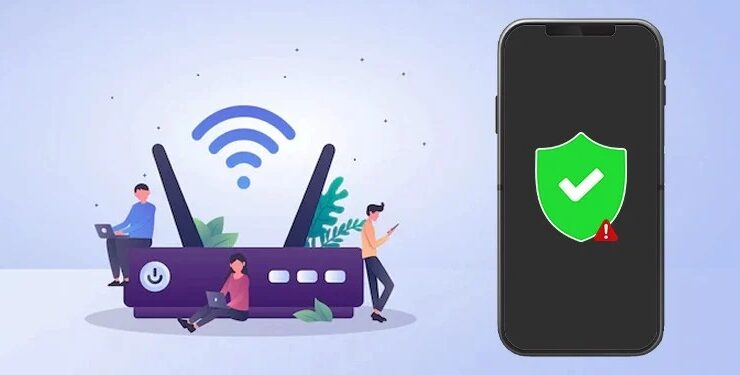
Data breaches, ransomware attacks, identity theft… These concepts are more than familiar to anyone who follows internet- and tech-related news. It’s not that nothing else is going on, and journalists recycle old content. Rather, attacks keep escalating, and the stakes are rising year over year.
What are the tech-savvy among us doing about it? Fortifying our digital defenses and pushing back against the tide! Want to bring your own protection up to snuff? Then, start with these five core tools.
Next-Generation Firewall
Firewalls are among the oldest tools in the security-conscious user’s toolkit. Traditional ones excelled at monitoring and analyzing network traffic, preventing malicious connections that could compromise network security. They operated only on levels 3 and 4 of the OSI framework, allowing packet inspection and blocking.
Next-generation firewalls also have access to the application layer and build upon the originals’ features. They can analyze packet contents for malicious code or deny access to suspicious applications. NGFWs also use intrusion prevention techniques and have access to outside threat intelligence that lets them prevent emerging threats sooner.
An Antivirus or Antimalware Program
The next generation of firewalls offers more extensive connection security, but it’s not a catch-all solution. According to the AV-Test Institute, more than 450,000 new malicious programs emerge daily.
Some of it – like viruses, worms, and Trojans – falls in the antivirus domain. Still, many of these threats require a broader, more comprehensive approach.
The best antimalware programs incorporate antivirus protection and tackle threats like spyware, adware, and emerging dangers. They augment threat databases with machine learning algorithms that can identify and counteract new malware on the fly.
The antimalware umbrella also includes email protection and software analysis that identifies abnormal behavior, allowing it to uncover and quarantine unknown threats.
A Password Manager
Credential-based attacks are among the most common – and potentially devastating – cyber threats.
Some are out of a user’s control, like when companies suffer data breaches that leak millions of login details. Others happen due to negligence and result from using easy-to-guess or identical passwords across accounts. Password managers address both threats with equal effectiveness.
Using one lowers your attack surface since each associated account gets a one-of-a-kind password that bad actors can’t brute force. Managing hundreds of passkeys is easy, thanks to autofill, and the manager uses encrypted storage to keep them safe.
Moreover, password managers address the data breach problem by including multifactor authentication. You can’t do anything about a compromised company’s concerning security standards. However, MFA ensures you’re aware of unauthorized login attempts and protects affected accounts until you create a more secure password.
Encryption Tools
Tech-savvy people realize the importance of a strong cybersecurity posture and can prevent attacks more consistently. They’re also aware that impenetrable cyber defenses don’t exist. Doing what you can but planning for the worst is a sound approach, and encryption is at its core.
Encryption tools use complex algorithms to prevent sensitive data from falling into the wrong hands. Encrypted data appears jumbled and nonsensical, so it’s unworkable even if an attacker manages to retrieve it.
You can encrypt an entire drive if it holds lots of sensitive information. Using encryption selectively on crucial files is more convenient and can be similarly effective.
A VPN
The scope of cybersecurity today extends beyond securing accounts and data. Protecting one’s online privacy is a concern for forward-thinking individuals and governments that want to define and strengthen their citizens’ rights in the digital space. Relevant new legislature is laying the legal groundwork, and individuals can already take matters into their own hands via tools like a VPN.
Secure virtual private networks that you can find in the VPN comparison table with highlighter features, also use encryption. Whereas the tools above protect data at rest, VPNs envelop your internet connection in an encrypted tunnel. That makes any communication or data exchange you conduct when it’s active immune to snooping and being intercepted, whether by a bad actor, ISP, or advertiser.
VPNs use servers at different locations to make website requests on your behalf without exposing your IP addresses. This gives anyone who’d track or spy on your internet activity nothing to go on. Such communication is also a must for people who work from home and need secure access to their workplace’s network.
Bonus Tip
These are the five most impactful and effective cybersecurity tools, but the quest for all-encompassing digital protection doesn’t stop there. Privacy-focused browsers are another popular preventative measure, and some users go so far as to adopt new operating systems to put tighter controls on app permissions and data gathered on their activities.
Even that is just the beginning, as the expert-level cybersecurity rabbit hole runs deep. Our recommendations will get you off to a flying start; how much further you want to take your cybersecurity strategy is up to you.


